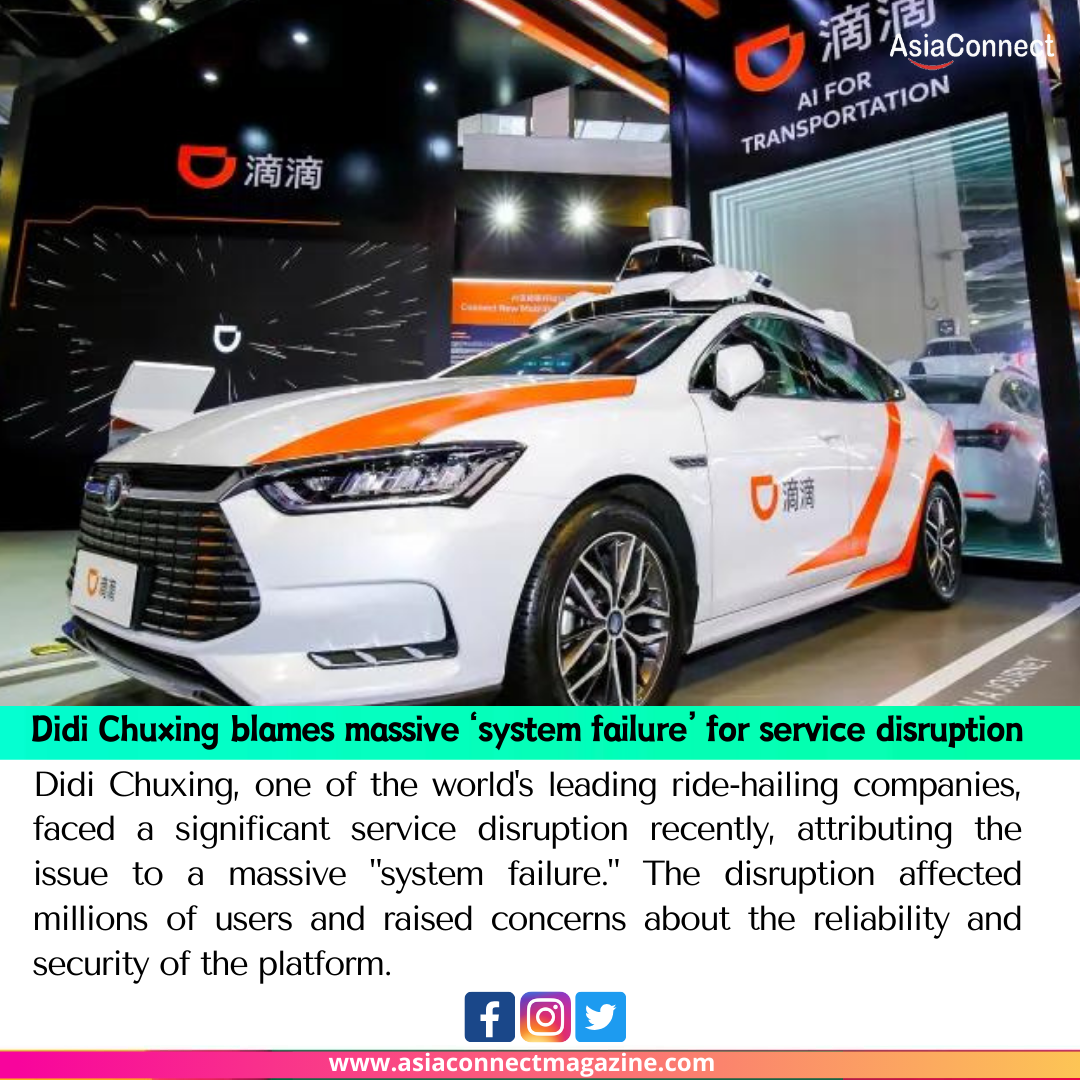Didi Chuxing, one of the world’s leading ride-hailing companies, faced a significant service disruption recently, attributing the issue to a massive “system failure.” The disruption affected millions of users and raised concerns about the reliability and security of the platform.
The incident unfolded as users across various cities reported difficulties in booking rides through the Didi app. The disruption not only inconvenienced passengers but also posed challenges for drivers who rely on the platform for their livelihoods. Didi Chuxing moved swiftly to address the issue and issued a public statement acknowledging the extent of the problem.
In the statement, Didi Chuxing apologized to its users for the inconvenience caused by what it described as a “system failure.” The company assured users that its technical teams were working diligently to identify and rectify the underlying issues, emphasizing a commitment to restoring normalcy to its services as quickly as possible.
The disruption shed light on the vulnerability of large-scale technology platforms that underpin critical services. Didi Chuxing, often referred to as the “Uber of China,” plays a central role in the transportation ecosystem in several countries, and any service disruption has cascading effects on both users and the broader transportation network.
While Didi Chuxing did not provide detailed information about the nature of the system failure, industry experts speculate that it could be related to the complex and interconnected nature of the platform’s infrastructure. With millions of users, drivers, and transactions occurring simultaneously, even a minor glitch can escalate into a widespread disruption.
The incident prompted discussions about the importance of robust infrastructure, redundancy measures, and contingency plans for tech companies operating at such scale. The reliance of urban populations on ride-hailing services for daily commuting underscores the critical role played by companies like Didi Chuxing in ensuring the smooth functioning of transportation networks.
In response to the disruption, Didi Chuxing implemented measures to keep users informed about the status of its services. Updates were provided through the app, social media channels, and other communication channels to manage user expectations and offer transparency during the resolution process.
The service disruption also raised questions about data security and privacy. Didi Chuxing holds vast amounts of sensitive information, including user locations, payment details, and travel history. The company reassured users that their data remained secure during the system failure, emphasizing its commitment to safeguarding user privacy.
The incident comes at a time when the tech industry is facing increased scrutiny regarding the reliability and security of digital services. As companies continue to innovate and scale their operations, the need for robust cybersecurity measures and contingency plans becomes paramount to ensure uninterrupted service delivery.
Didi Chuxing’s handling of the system failure, including its transparent communication with users and swift efforts to resolve the issue, reflects a commitment to customer satisfaction and service excellence. However, the incident serves as a reminder of the challenges inherent in managing and maintaining the complex technological infrastructure that powers today’s digital economy.
As Didi Chuxing works to fully restore its services and investigate the root causes of the system failure, the incident will likely prompt other technology companies to assess and strengthen their own systems to mitigate the risk of similar disruptions in the future.





